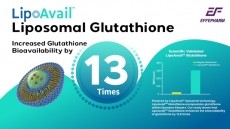Lycopene intake linked to lower pancreatic cancer risk
help reduce pancreatic cancer risk, conclude the Canadian authors
of a new study.
Although fruits and vegetables are thought to reduce risk of the cancer, the role of phytochemicals on pancreatic health has received little attention to date, they write in the March issue of the Journal of Nutrition (vol 135, pp592-597).
However the carotenoid lycopene, which gives red fruit and vegetables their colour, has already been associated with lower risk of prostate and breast cancer. The new study adds further support to its anti-cancer activity, beginning to be elucidated in early results showing potential mechanisms for this action.
The team from the University of Ottawa, University of Montreal and the Centre for Chronic Disease Prevention and Control at Health Canada, compared self-reported dietary information from 462 pancreatic cancer cases with 4721 population-based controls.
After adjustment for factors such as age, body mass and smoking, they found that lycopene, provided mainly by tomatoes, was associated with a 31 per cent reduction in pancreatic cancer risk among men in the highest quartile of intake compared with those in the lowest quartile.
Both beta-carotene and total carotenoids were associated with a significantly reduced risk among those who never smoked.
Pancreatic cancer is the eigth most common cancer in women, and the 11th most common cancer in men in the UK. Each year, there are almost 3,600 new cases in women, and over 3,300 cases in men.













